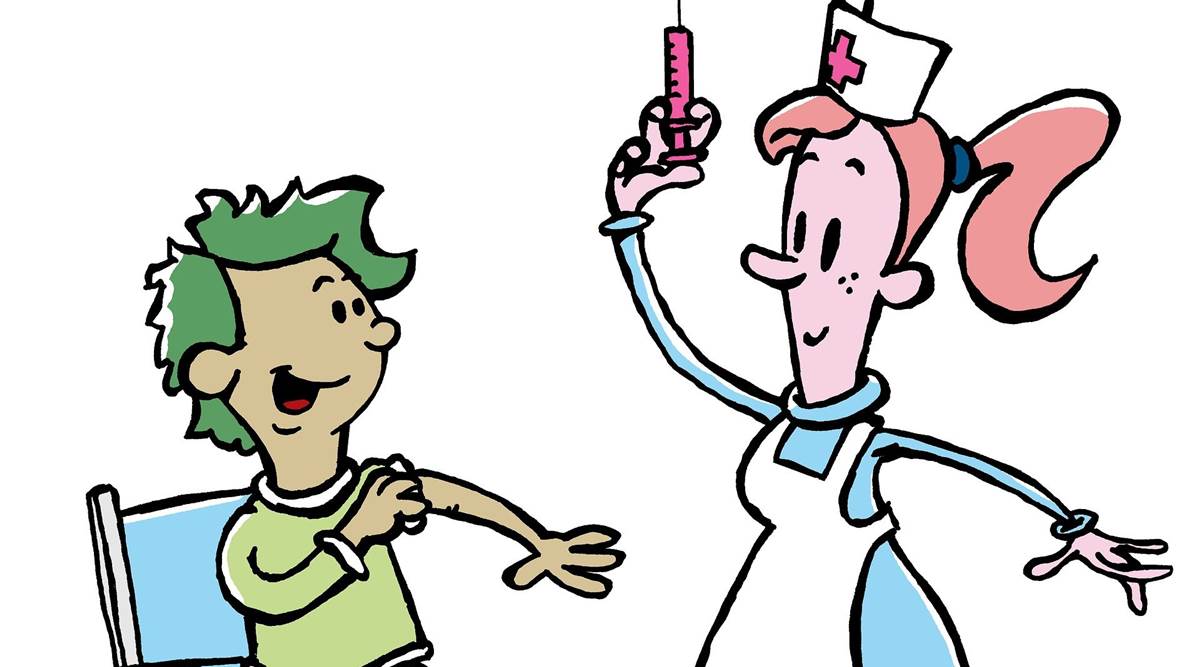Taking kids out for vaccination during the pandemic? Follow these precautions
While parents are reluctant to step out and get their children vaccinated, timely vaccination of newborns and children is critical to protect them from serious diseases.

The immune system in newborns, babies and children is not fully developed, and thus, they are at a higher risk of infection from diseases like measles, tetanus, diphtheria, whooping cough (pertussis), etc. Vaccines are tested as an effective solution to prevent the spread of life-threatening diseases among children and communities. Vaccination makes their immune system stronger and produces antibodies that protect them from deadly diseases.
The Centers for Disease Control and Prevention (CDC), Food and Drug Administration of USA (FDA), the Indian Council of Medical Research (ICMR) and the Indian Academy of Pediatrics (IAP), are apex bodies in the world and in India that ensure all vaccines have acceptable safety profile and are effective to use. Extensive lab testing and research are carried for many years before a vaccine is approved for public use.
Vaccination during COVID-19 pandemic
We understand the COVID-19 infection is spreading fast and parents and families are reluctant to step out and get their children vaccinated.
Timely vaccination and immunisation of newborns and children are extremely critical to protect them from serious diseases. There are no known benefits of delaying or cancelling your baby’s vaccination. With the right precautions outlined by the CDC and World Health Organization (WHO), parents can reduce the risk of contracting an infection, and make sure their child does not miss important vaccinations.
Precautions to be followed
If your child is not vaccinated because of COVID-19, call your paediatrician or general physician and enquire about the safe ways to vaccinate them. Important precautions to be followed during COVID-19 are:
● Visit the clinic only after you have a confirmed vaccination appointment.
● Stay outside the doctor’s office until it is time for your appointment.
● Wrap neonates in a soft cloth to provide comfort while going to the clinic.
● Wear proper masks, gloves, and PPE (personal protective equipment) suits, if required.
● Maintain a distance of 2 metres with everybody inside and outside the clinic.
● Wash hands thoroughly before and after the vaccination shot. Carry a 70 per cent alcohol-based hand sanitiser.
● Do not carry any toys/personal objects and avoid touching door handles and railings.
● Digital payments are preferred.
● Senior citizens (more than 60 years of age) should not visit the clinic.
● Enter, exit and conduct yourself in the clinic in accordance with their guidelines.
Vaccination procedure and guidelines: What parents need to know
The following are general guidelines and precautions that should be followed before, during, and after getting your child vaccinated:
Before the visit
● Carry the vaccination record card. Request for a new card if it is the first vaccination shot.
● Visit the clinic with a prior/scheduled vaccination appointment.
● Learn about the vaccine(s), its purpose and benefits.
● Notify the doctor beforehand if your child is immunocompromised.
Prepare yourself and your child
● Be ready to support your child fully during and after the shot.
● If your child is older than two years, explain to them why you are visiting the doctor.
● Let your child know that the shot will pinch or sting for a short while, but it won’t last long.
At the clinic
● Inform doctors about the health condition of the child.
● Get the composition of the vaccine checked by a nurse/doctor in case your child is allergic to any of the medicines or substances.
● Get the Vaccine Information Sheet [VIS] of each vaccine your child receives.
● Calm down your child if they get anxious looking at other children.
During the shot
● Remain calm and relaxed even if the child is in pain or discomfort during vaccination.
Stay safe, stay strong, stay protected!
Disclaimer: Information appearing in this material is for general awareness only. Nothing contained in this material constitutes medical advice. Please consult your physician for medical queries, if any, or any question or concern you may have regarding your condition.
(With inputs from Practo)
Source: Read Full Article


